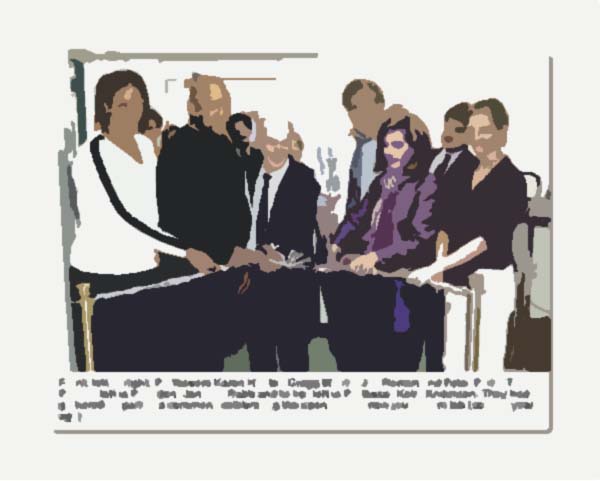This post may help clarify for students any confusion regarding publication of the WORD. It may also provide clarification for others on and off the Hunter College campus who come across this blog.
The WORD is an innovative pedagogical tool to teach students journalism. It’s based on this principle: Require students to write for publication and provide media that will showcase their work. The publishing imperative requires the students and the instructor to strive for higher academic standards and achievement. Burgeoning technology, of course, has significantly increased not only this potential for improving student writing but also the potential for enhancing student education. The WORD has also significantly improved student opportunities for getting internships and jobs.
True, a lot of professors believe that it’s not their responsibility to help students get internships and jobs, that such responsibility regarding career choices and decisions falls on the the students’ shoulders or with their colleges’ career services support systems. Hunter has a really good support system but this instructor believes that J-professors, especially, should be proactive mentorers (especially when there are operations like the WORD that can help make it easier for them to contribute to students’ careers).
Students first started publishing articles in the WORD several years ago (first at http://theword.hunter.cuny.edu and this past academic year at http://hunterword.com), and the acclaim – about students writing and publishing – reverberated and continues to reverberate beyond the Hunter campus boundaries, literally and figuratively. This project has received financial support from Hunter College, (in the form of six grants), The Ethics and Excellence in Journalism Foundation, Independent Press Association-New York (now known as the New York Community Media Alliance) and from the FORD Foundation [for a multimedia project to teach students about ethnic/immigrant issues]. It is not a cash machine but it generates benefits for students.
That same popularity and significant applause for the WORDÂ fueled jealousy -Â invidious and inimical -Â among colleagues in the Department of Film and Media Studies as well as some of their colleagues/buddies outside the department and rogue elements of the Hunter community who became obsessed with what they perceived the project’s proprietary assets, i.e., the web sites, [ignoring the pedagogy and methodology and educational values that are the most significant assets of this project]. That led to brawls, internecine and otherwise. I’ve described this situation on more than one occasion (not on this blog site) as a war and that Academic Freedom and First Amendment issues were being slighted if not ignored.Â
But the purpose of this post is to provide clarification, to elucidate, not overload blog readers, especially students, with accounts of the academic barroom brawling that has and is taking place in F/M.
I’m allowing myself a gripe: At a department meeting several years ago, after I thwarted  attempts to “take over” the WORD [this takeover attempt needs to be explained but not here], I asked the conspirators in so many words [quote marks for effect]: Why the shenanigans and the deceit, why couldn’t we have talked about it? And there was no response because shenanigans and the deceit were and make up the department’s creed.
Except for one or two exceptions in a given academic year, most byline articles are written by students enrolled in my classes or doing independent studies or in-department internships with me. They are required to submit articles for publication or become involved in the evolving multimedia operations of the WORD. The publication provides other news/information for experimental purposes (such as a nascent, urban syndicating news service disseminating information to other CUNY student media as well as community news organizations). However, there are exceptions and they are rare.
This past academic year, Gresham Gregory and a few other students contacted me about doing film reviews. All but Gregory fell by the wayside. Â Gregory, however, has been a tour de force, compelling me to set up his own section [at hunterword.com].
And I’m am always experimenting with this operation because, as many already know, technology is reshaping and reforming the landscape about news and journalism and communication. Â One wonder when F/M will realize this.
I also publish, in the form of op ed and opinion pieces, email-posts from Hunter-L, the College listserv, and other nontraditional sources, such as emails from yahoo groups (such as occasional email material from Professor Ed Kent of Brooklyn College who sends emails with info on a lot topics).
It also publishes reports/news/info from Race Relations Reporter, PR Watch and the section Health News; none of the reports/articles/stories are student generated. [check them out at hunterword.com]
A few students occasionally provide pictures to accompany their articles though they are not required to do so but I plan to do more in this area. However, most of the published pictures come from non-copyright sources. And, yes, podcasting from this site will become more evident in the near future.
This past semester, Gresham Gregory did film reviews – see the front page of the WORD for his film review section – and he didn’t do them for credit.
In summary, except for someone like Gregory, students who want to write for the WORD have to be registered in my classes or for credit. This assures accountability and standards and enhances the learning-teaching process – education, being, of course, what the WORD is about.
Â
If interested students suspect – or are informed – that my classes are closed during a semester, they should contact me directly [gmorris@hunter.cuny.edu].
So, what is this Parisi Paradoxy?
Read Part 2 of the Parisi Paradoxy in the next post.
Tags: academic freedom, Department Politics, journalism education, Office Politics
